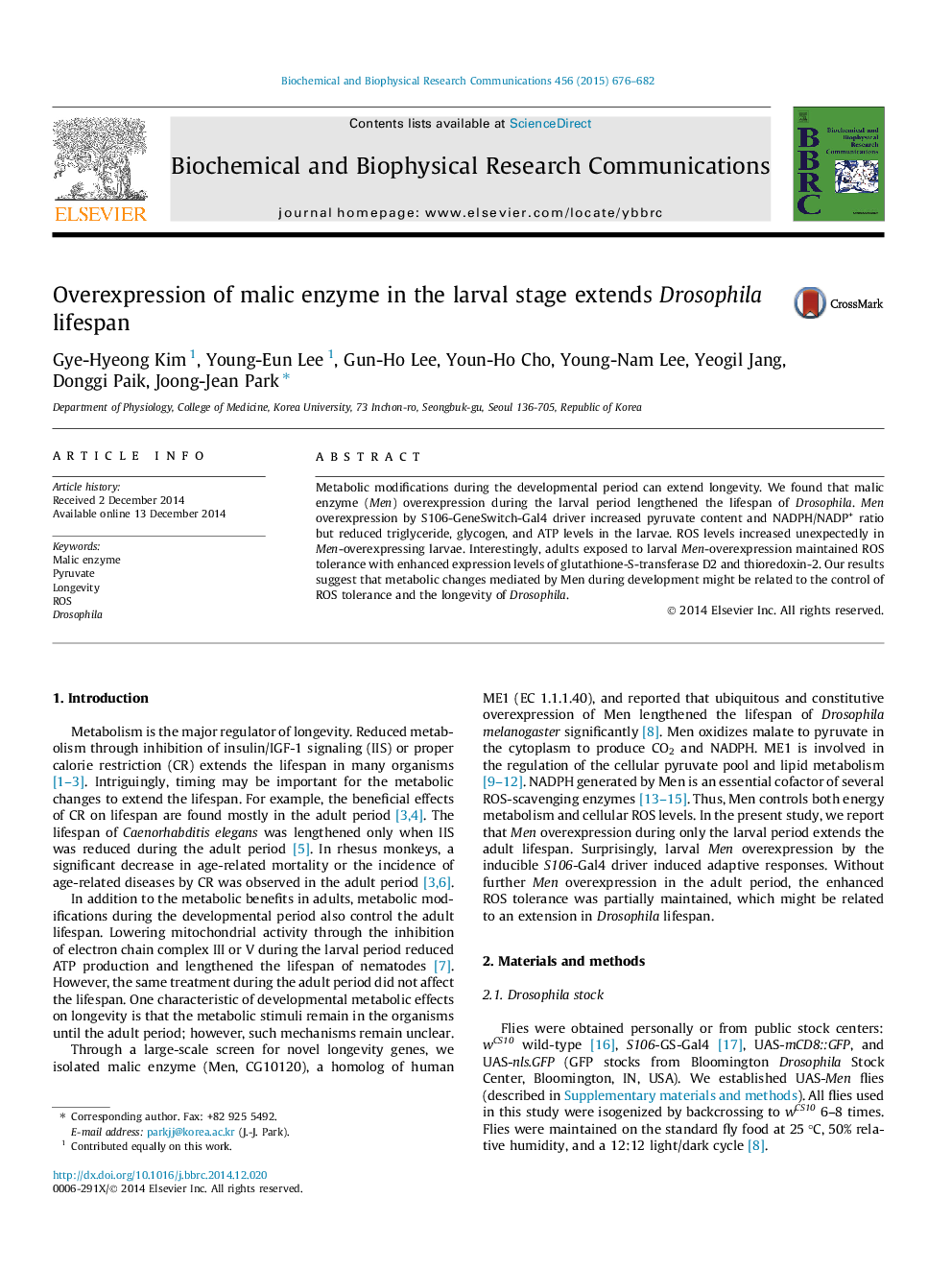| Article ID | Journal | Published Year | Pages | File Type |
|---|---|---|---|---|
| 1928295 | Biochemical and Biophysical Research Communications | 2015 | 7 Pages |
•Overexpression of malic enzyme at larval period extends adult lifespan.•Larval overexpression of malic enzyme increases ROS production.•Malic enzyme overexpression induces an adaptive response in larvae.•Adults exposed to larval overexpression of malic enzyme are resistant to ROS stress.•GstD2 and Trx-2 levels are higher in adults exposed to larval Men overexpression.
Metabolic modifications during the developmental period can extend longevity. We found that malic enzyme (Men) overexpression during the larval period lengthened the lifespan of Drosophila. Men overexpression by S106-GeneSwitch-Gal4 driver increased pyruvate content and NADPH/NADP+ ratio but reduced triglyceride, glycogen, and ATP levels in the larvae. ROS levels increased unexpectedly in Men-overexpressing larvae. Interestingly, adults exposed to larval Men-overexpression maintained ROS tolerance with enhanced expression levels of glutathione-S-transferase D2 and thioredoxin-2. Our results suggest that metabolic changes mediated by Men during development might be related to the control of ROS tolerance and the longevity of Drosophila.
Graphical abstractFigure optionsDownload full-size imageDownload as PowerPoint slide
